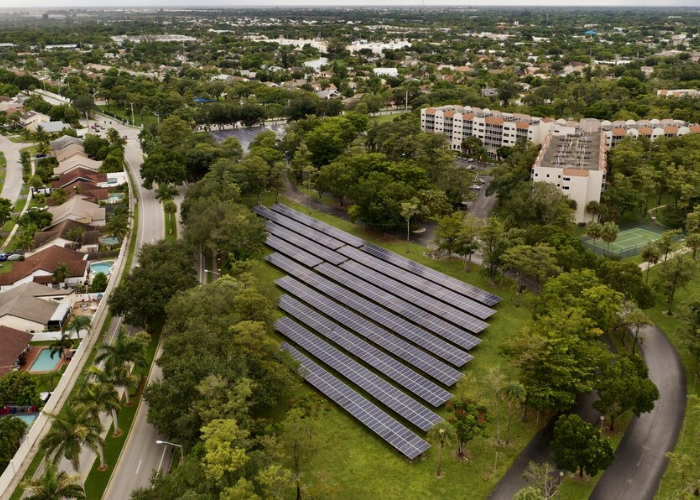
How Solar Energy Reduces Carbon Footprints and Builds Sustainable Cities
The demand of energy is increasing with the increasing population of cities. Majority of the cities continue to rely on fossil fuels, which emit high volumes of carbon dioxide into the atmosphere. This increment in emissions is among the largest contributors of climate change. The solar energy is clean and reliable and long-term and can be used to assist cities to reduce their carbon footprints and work towards a more sustainable future.
The importance of Solar Energy to the Urban Sustainability
Today's renewable energy source that stands out is solar power, as it does not release greenhouse gasses when producing electricity compared to coal or natural gas production methods. According to the International Energy Agency (IEA), solar is fast becoming one of the fastest expanding sources of renewable energy worldwide and can help nations reduce millions of tons of CO2 annually by helping nations use less of it for powering infrastructure needs.
Solar energy solutions will enable cities to reduce air pollution, decrease their reliance on foreign fuel sources, and enhance energy security overall. This becomes even more crucial in countries with increasing energy demands that place strains on power grids.
The reduction of the carbon footprints by solar power
The solar systems produce electricity by using sunlight. It is an indication that all units of solar generated power substitute a unit of electricity that could be created using fossil fuels. It has been found that a typical 1 kW rooftop system can eliminate CO2 emissions ranging between 1.2 to 1.5 tonnes/year, in different regions and grid emissions.
The extensive application in the residential, commercial, and industrial markets can reduce carbon footprints in urban areas. Solar panels on roofs, parking lots, and government facilities also enable cities to harness areas and generate clean energy in the city.
Constructing Sustainable and More Durable Cities
To be more sustainable, cities all over the world are implementing solar energy not just to save the environment, but also to transform themselves. With the inclusion of battery storage to solar power systems, communities will be safer in times of emergency as they have a backup supply of power.
An example of this is solar-powered street lights which are independent of the grid. They save on electrical power, save on the maintenance of the facility, and ensure that the public areas remain lit even when there is a power failure. These innovations assist urban areas to lower the overall energy consumption and advance safer and more efficient cities.
A Step to a Low-Carbon Future
The use of solar energy helps in the long term climate objectives. Cities can make the future of the next generation healthier and improve the living conditions by cutting down carbon emissions, enhancing the air quality, and encouraging clean technology. Solar power is among the most viable solutions to sustainable urban development with the falling equipment costs and the enhanced technology.
Solar India facilitates the process of moving to cleaner and more sustainable cities by providing reliable solar power at home, businesses and in open areas. Having a view to quality and long term energy saving, Solar India still helps to make the future greener and more energy efficient.
